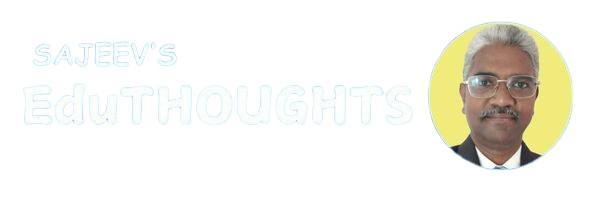Highlights
- Introduction
- Effective Study Techniques for Exam Preparation
- Time Management Tips
- Tips for the Day Before the Exam
- Common Mistakes to Avoid
- Importance of Effective Exam Preparation for Success
- Conclusion
Introduction
Exams are an essential component of academic courses, though students commonly experience overwhelming sensations during the preparation period. Students using suitable methods will reduce stress and enhance academic results. This article contains concrete studying methods together with time-planning advice that helps students for exam preparation. The strategies discussed here support college and high school students in creating organization and focus and boosting their self-confidence.
Why Effective Exam Preparation Matters
Academic achievement demands students to perform necessary preparations for their exams. Students gain better performance results because effective examination preparation lets them keep important information while developing their complete understanding of the materials. When students have no structure in their preparation, they face difficulties with struggling to learn at the last minute, which causes both high levels of anxiety and lower scores. Students who learn proven study methods combined with time management skills will modify their examination preparation system to obtain the desired results.

Effective Study Techniques for Exam Preparation
Create a Study Schedule
To succeed in exams, students need a carefully planned study routine as their initial approach to preparation. Your syllabus needs a systematic breakdown into small sections, which should receive designated time slots for each subject area. You should use tools like planners, calendars, and studying applications to monitor your academic advancement.
Use Active Learning Methods
Just sitting and reading material does not guarantee proper information retention. Active learning techniques that you should use include:
- Summarizing: Write summaries of each topic in your own words.
- Teaching: Explain concepts to a friend or family member.
- Practice Questions: Students should solve previous exam papers and test questions to evaluate their understanding.
Use Visual Aids
The combination of mind maps and flowcharts along with diagrams functions as visual support that assists you in understanding difficult academic subjects. The study tools facilitate information retrieval when taking examinations.
Take Regular Breaks
Burning out from studies happens when students study for extended periods without adequate rest breaks. Use the Pomodoro Technique as your method by dedicating 25 minutes to study followed by a 5-minute break. Prepare for a 15- to 30-minute longer break cycle after performing four successive study rounds.
Revise Regularly
Frequent review counts as the essential component for keeping information in your mind. Reserve some time both daily and weekly to revise the content you studied before. Students should use flashcards as well as create their quizzes to maximize memorization.

Time Management Tips for Exam Preparation
Prioritize Your Tasks
Focus first on the academic areas that stand as your main priorities for additional focus. The Eisenhower Matrix helps you classify your tasks into four categories, which include urgent/important and important/not urgent as well as urgent/not important and neither. Focus on high-priority tasks first.
Set SMART Goals
Every SMART goal must satisfy the criteria to be specific, measurable, achievable, relevant, and time-bound. Instead of committing to “I will study math,” you must establish the goal of “I must finish three algebra chapters before Friday.”
Avoid Procrastination
Procrastination causes students frequent difficulties with starting and finishing their work. To overcome it:
- You should divide significant tasks into shorter sections for better manageability.
- Disruptions from social media platforms and pointless mobile activity should be cut off.
- Students can use apps like Forest or Focus@Will to maintain their concentration.
Balance Study and Rest
The right combination between work and rest needs to exist to sustain productivity levels. Make sure to sleep for 7-8 hours each day along with eating healthy meals while performing physical activities that include yoga and walking.
Use Technology Wisely
Educational applications together with virtual learning materials will strengthen your preparation efforts. The educational tools Quizlet and Khan Academy, together with Evernote, enable students to manage their notes along with practice questions and monitor their achievements.

Tips for the Day Before the Exam
- Review Key Points: You should compress essential concepts along with formulas instead of adding new information at this point. Short notes and flashcards work best for brief final study sessions before the exam.
- Prepare Your Materials: All necessary items, including pens, pencils, calculators, and admit cards, should be prepared in advance. Having everything prepared in advance prevents increased stress during the exam day.
- Stay Calm and Positive: Gradual breathing exercises together with meditation will help you control your anxiety. Your performance will benefit greatly from remaining positive during examinations.

Common Mistakes to Avoid During Exam Preparation
- Cramming at the Last Minute: When students cram study, they develop rusted knowledge and create greater exam anxieties. The correct timing for preparation will help you prevent cramping.
- Ignoring Weak Areas: Devote your time to work on the sections where you need improvement rather than continuing to review things you already mastered. This ensures a well-rounded preparation.
- Neglecting Health: Poor diet and lack of rest can hinder memory and concentration. Health maintenance becomes essential during the exam preparation period.
Importance of Effective Exam Preparation for Success
Preparation for an exam is not an option. Preparation invariably boosts the confidence of a candidate. If one has studied, he feels geared up for the exam, which helps him be more focused and perform sincerely. One also develops his time management skills and learns to prioritize. When all is set, there is little disorder, and all stimuli are focused when one is in the exam room; that is stress-free and relaxed during the exam.
Preparation goes far beyond memorizing; it aids in some real comprehension of the material. With such a wider outlook on concepts, one can afford to come up with ingenious ways of tackling cumbersome questions; usually, surgery by unrelated multiple-choice will yield a favourable and eloquent solution to them! The spacing out of study along with active recall is encouraged to ensure that learners remember what they have studied so that they are not blank on an exam. Early preparation also enables a pupil to identify weak areas and start transforming those into strengths long before D-day.
In addition to this, prior preparation has decreased the level of anxiety. Less the shocks—with more presence of mind, the right choices can be made. The skills cultivated in preparation disciplines and resilience will help achieve great success beyond just the purposes of examination. Greater preparation shall yield greater achievements, and effort will truly equate to excellence. So, why remain mediocre when you can reach greater heights out of choice? To succeed, plan, practice, and perform; it requires discipline!
Conclusion
Students who want to prepare efficiently for exams need to develop both strategic study methods and control their time well. Students who establish study schedules alongside active learning approaches while keeping their most important tasks at centre stage will achieve better productivity while decreasing their stress levels. Your physical and mental well-being matters greatly because they contribute significantly to your examination success. The combination of proper strategies will enable you to enter your exams with confidence while securing the outcomes. Using these recommendations immediately will produce major improvements to your exam preparation methods. Good luck!
FAQs on Effective Exam Preparation
How do I create an effective study plan for an examination?
Break down your syllabuses into smaller portions and allot definite time slots for every subject to create an active timetable. Use planners, calendars, or study apps to monitor your progress and to make certain your preparation is evenly balanced.
What are the active learning techniques used for better retention?
Active learning includes summarizing key concepts in one’s own words, teaching another person this information, and working backwards through past exam questions, as well as lecture notes, graphics, mind maps, and flowcharts.
How do I control procrastination while studying for an exam?
Beat procrastination by breaking larger tasks into smaller, manageable chunks; cut down on distractions from social media and needless phone use; and use focus apps such as Forest or Focus@Will.
Why is it essential to manage time concerning exam preparation?
Effective time management prioritizes work and reduces last-minute cramming while ensuring regularity in revision. Some simple techniques include the Eisenhower Matrix and setting SMART goals, which help students stay on one priority area.
What should I do the day before the exam?
Review the key points, outlines, and formulas rather than cramming more material; pack your bag with everything you will need for the exam; do relaxation exercises to calm down from the stress; and sleep without further.
You may like to read:
Curriculum Planning: How to Optimize Learning with Proven Models
How to Build Self-Confidence in Students: 6 Effective Strategies
- How to Dominate Your Online Business With 5 Proven Digital Marketing Strategies
- How to Cultivate Critical Thinking and Problem-Solving Skills in Classroom
- Top Proven Mental Health Strategies for Schools in 2025-26
- Time Management for Teachers: How to Plan, Prioritize, and Perform Better
- How Parental Involvement in Education Shapes a Child’s Growth and Success



